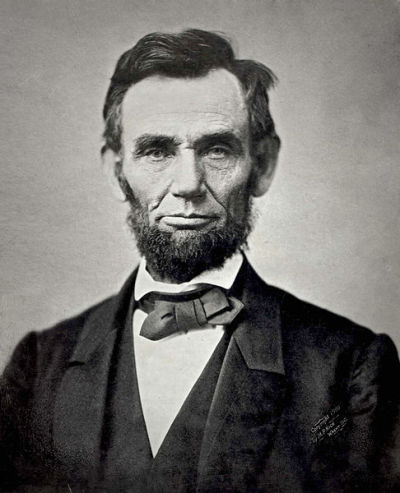Tweet Like Abraham Lincoln to Come Out Ahead This Election Season

With just a quick look at your social media feeds you can feel a negative vibe on social media about the 2016 elections. The thousands of candid and some just-downright-hateful messages about who is the best candidate for the highest office in the land are pretty exhausting.
A recent survey finally nailed what everyone was feeling: political smears are considered the most annoying topic on social media with half of Americans surveyed being angered or annoyed by this type of content. This survey also showed 73 percent of respondents admitted to having unfollowed, blocked or hidden posts from another person because they didn't like the content shared. This was a legit study commissioned by Maytag (as a promotion of their anti-smear stainless steel) that statistically proved what we were all thinking.
I know you are picturing someone in your mind right now. That person who fills up your timeline with comments about candidates that would make your mom blush. Sometimes these posts get aggressive and personal. I was just talking to a friend who had a co-worker hassling him repeatedly on Facebook about his political stance. #notcool
Sending a hasty, emotionally charged social post or comment, especially in response to others, about the elections can destroy your personal and professional reputation.
What guru out there has the best advice for this epidemic? I would venture to say it's from America's 16th president.
Abraham Lincoln was no stranger to public attacks and negative opinions. His were just solely in print and in person.
In the book Lincoln on Leadership by Donald T. Phillips, you get a glimpse of how President Lincoln would handle the negative talk we are seeing in this election cycle.
"One of Lincoln's most effective methods of dealing with harsh criticism was to write extended letters of refutation. Often, in order to vent his anger and frustration, he would sit down at his desk, compose a letter of denial, and then walk away without sending it. He felt better for having stated his case but did not want any of his angry or emotional remarks made public."
Go ahead. Pound out that tweet or post, get your rebuttal off your chest, and then delete it. I would strongly advise you do it in a Google doc in case you get a fat finger and accidentally hit send.
Don't be fooled. There are real life consequences that can come from everything we post. Through November and beyond, let's all take a deep breath and practice the restraint found in "Honest Abe's" playbook. There will be appropriate moments to share your opinion, but choose the time and content wisely.
And, you know that friend you were thinking about earlier — well, you may want to share this article with them. Just saying ....



























